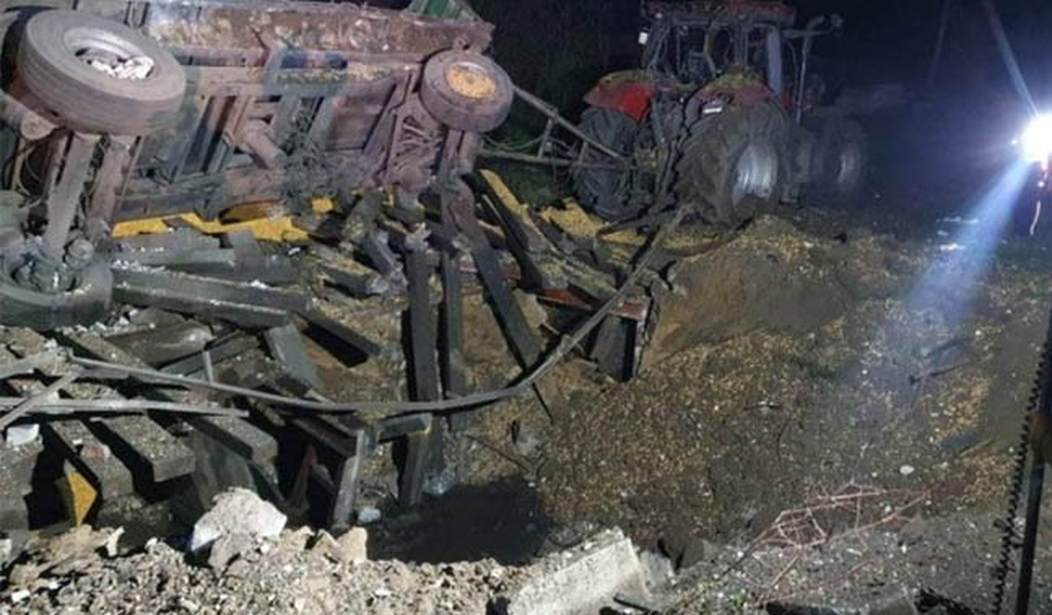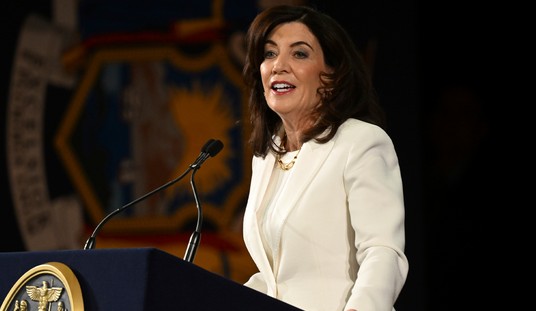Remember that time a news report almost became the start of World War III? That’s overselling it a bit, but it was serious enough to demand accountability. Is that what the Associated Press provided by firing the reporter, however?
Last week, James LaPorta reported for the AP that a Russian missile had struck rural Poland, killing two people. That report got picked up by a number of outlets, and for good reason given that an attack on Poland could provoke NATO’s Article V and force a military response. Despite LaPorta’s sourcing, it became clear fairly quickly that the missile involved wasn’t Russian, but instead a Ukrainian anti-aircraft missile that went awry. Poland quickly de-escalated the issue, and hopefully everyone learned a lesson from it.
Not least of whom was LaPorta himself, or so it seems. Late yesterday, the Associated Press fired him, supposedly for misrepresenting the sourcing:
On Monday, the AP fired James LaPorta, the investigative reporter responsible for that story, Confider has learned.
The piece, which was originally co-bylined with John Leicester (who is still working at the AP), attributed the information to a single “senior U.S. intelligence official,” despite the AP’s rule that it “routinely seeks and requires more than one source when sourcing is anonymous.”
The only exception, according to its statement of news values and principles, is when “material comes from an authoritative figure who provides information so detailed that there is no question of its accuracy”—a situation that seemingly did not occur, as the report was fully retracted last Wednesday.
When reached for comment, an AP spokesperson did not comment on LaPorta’s ouster but instead wrote: “The rigorous editorial standards and practices of The Associated Press are critical to AP’s mission as an independent news organization. To ensure our reporting is accurate, fair and fact-based, we abide by and enforce these standards, including around the use of anonymous sources.”
The Daily Beast noted that they didn’t hear whether LaPorta’s editors would face any discipline for not adhering to their usual process. The Washington Post follows up this morning, and the story gets a little … strange:
Internal AP communications viewed by The Post show some confusion and misunderstanding during the preparations of the erroneous report.
LaPorta shared the U.S. official’s tip in an electronic message around 1:30 p.m. Eastern time. An editor immediately asked if AP should issue an alert on his tip, “or would we need confirmation from another source and/or Poland?”
After further discussion, a second editor said she “would vote” for publishing an alert, adding, “I can’t imagine a U.S. intelligence official would be wrong on this.”
But a person at the Associated Press familiar with the larger conversations surrounding the story that day said LaPorta also told his editors that a senior manager had already vetted the source of LaPorta’s tip — leaving the impression that the story’s sourcing had been approved. While that editor had signed off on previous stories using LaPorta’s source, that editor had not weighed in on the missile story.
That explanation defies belief, however. Wouldn’t the editors upstream of LaPorta have checked in with the senior manager first on an editorial call of this magnitude? Clearly they were cognizant of the potential consequences of this report. It seems as though the AP is hoping to contain the damage by isolating it on the reporter, but this sequence doesn’t make much sense.
Even more bizarrely, however, is the quoted claim from the internal conversation What kind of news editor would base a decision on the solid foundation that a US intelligence official couldn’t get something wrong? We’ve had decades of experience in US intelligence getting plenty of things wrong, both organizationally and individually. No one expects them to be right all of the time, but their relatively poor batting average in the post-Cold War era has been a constant concern and focus in Congress.
Add to that LaPorta’s track record over the past decade, and this starts looking a little like scapegoating and less like real accountability. Assuming that this played out as the Post and Daily Beast lays out, LaPorta had a reliable intel source who passed along what later turned out to be bad data. LaPorta reported on it and handed it to his editors, who had the authority and responsibility to enforce standards on sourcing. If LaPorta misled his editors on vetting the source, that would be one thing, but the source had been previously vetted and fruitful even in that telling. The issue here looks more as though it belongs to the editors rather than the reporter — or at the very least, the editors along with the reporter.
Update: Sean Davis was skeptical about this last night as well. The AP seems to have employed a different standard with LaPorta, he points out (via Twitchy):
If relying on a “single anonymous source” were actually prohibited at the Associated Press, they wouldn’t have been able publish anything on the Russian collusion hoax, Kavanaugh, Ukraine impeachment, etc.
What’s the real reason he was fired? https://t.co/1r3mLh53nj
— Sean Davis (@seanmdav) November 22, 2022
Even if the AP is enforcing a multiple source policy, how in the world does that let the editors off the hook for running the piece anyway? This explanation makes little sense.







Join the conversation as a VIP Member